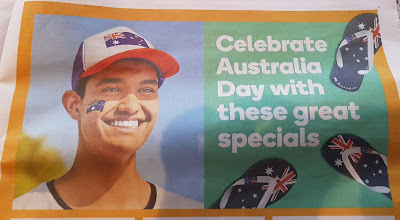I remember as a kid, some of the things from my own heritage, things outside of religion that have meaning and are said to bring misfortune or prevent it. In Maltese folklore a symbol derived from the Eye of Osiris or Horus is used on fishing boats to protect them from harm or misadventure. The symbol of the evil eye can be found in many different cultures that have Phoenician influence, including on the Greek Islands.
Another superstition I remember is the red horn or hand performing the horn sign, which is exactly the same hand gesture for "rock on". It was frequently used as jewellery or seen dangling from the rear vision mirror of cars, to keep the occupants safe or to curse male enemies with impotence.
 |
| Image via: Pixabay |
 |
| The Luzzu in Marsaxlokk, Malta. Image via: The Corinthia Insider |
 |
| Image via: Tuscan Traveler |
Superstitions originate somewhere, are changed and applied to suit the people who they benefit most and eventually fade into mythology. People tend to hold onto these symbols though, as cultural rites and identifiers. They make them feel empowered and in control of things that life inevitably throws at them. They are all a bit of fun when not taken too seriously; comforting and decorative. But they can also define a people and is truly what makes humans so interesting and diverse. We all see the world differently, based upon our heritage. It's how we find belonging and how we connect, not only with people that are like us, but those that aren't, who also explain the same things about life, just in different ways.
But what about when superstitions become institutionalised beliefs that dictate more serious ways in which we live our lives? What about when symbolism, mythology, folklore suddenly starts to infiltrate society, where fact and science belong? That's pretty much my understanding of every religion ever. People used ideas and symbols to describe and influence events. When they came up with better explanations or methods, through trial and error or what we now call scientific discovery, they tossed out the old ways and did things differently. Some things that worked long ago, remained. Many of life's basic knowledge about survival is ancient. Others that were no longer useful, became harmful or were replaced with better ways were forgotten, or given another place to occupy in people's psyches. Perhaps they were used as fables or moral stories, perhaps as cultural traditional celebrations or festivals. Maybe examples of what not to do.
It seems logical to me that by now as a species, we should be able to discern what is real and what isn't. What needs more attention and what can be discarded.
I heard a story not long ago, and it's what got me thinking about superstition. A counselor working in public health had to do a home visit for an adolescent client who was accessing services. When they arrived, one of the parents opened the door and immediately told the counselor to leave. You see she was wearing a red dress and the parent was offended. I don't have details about cultural background or where the belief was derived from but basically the parent believed that red was a deliberate choice by a government employee to exert power and there would not be an equal exchange between the counselor and the client if she came in wearing a red dress.
Amazing right? Ridiculous? Well to that parent it wasn't. It was real. The family, I assume, would already have been feeling vulnerable and powerless. The counselor on the other hand, would have had no idea, but of course would not have achieved much had they insisted on pursuing contact. Of course they left and the case was reassigned to another counselor.
Which brings me to my point. How are we to know what people are thinking all of the time, what beliefs they hold and how they navigate the world? When people's superstitions, (and that's what they are), are derived from a religious belief, particularly the three main Abrahamic religions (Judaism, Christianity, Islam), we have a bit more clarity because they have dominated and colonised a large part of the world. Of course other major religions like Buddhism, Hinduism, Sikhism have just as huge an influence on many. We can't exclude the Indigenous cultures of the world either, that despite attempts to colonise and eradicate them, have survived and in many parts of the world, through oppression and degradation have thrived and preceded everything else.
What about new and unknown stuff? There must be an eternal combination of heritage, new information, life experience and mental process that can influence the way a person walks through the world. What if someone thinks they can read my mind or vice versa? Or that they have had previous lives, or that I have? What if someone thinks they travel in their dreams or can heal using their thoughts and hands? (This is an actual industry worth millions of dollars). What if I am dealing with people on a day-to-day basis, people I love, acquaintances, those I interact with at work and in public, that have superstitions that I could never even guess let alone navigate openly? Maybe they think I'm sabotaging them or that they can move things with their mind and therefore I can too. Some people might have a thing about women with grey hair, or left handed people or those who only have female children or no children.
What if some people's superstitions are so strong that they genuinely believe things that are not real and don't exist, but live their lives as though they do and those people make the laws, influence the medicine, control the information and decide who is worthy of life and who isn't. Imagine that superstition was mixed up with government!!! Imagine that!


















